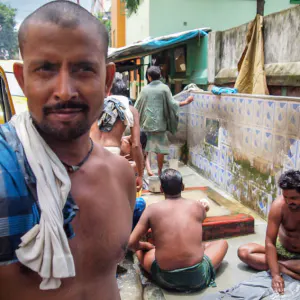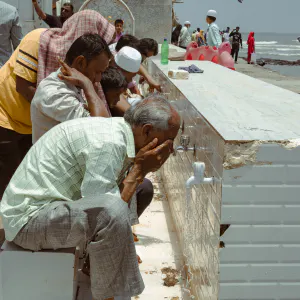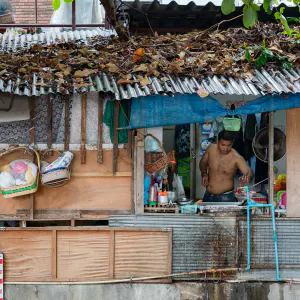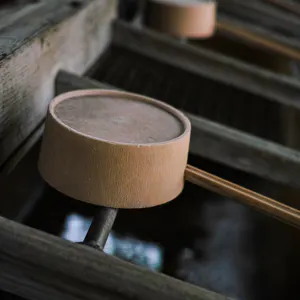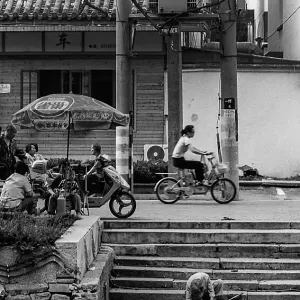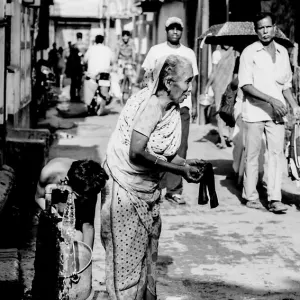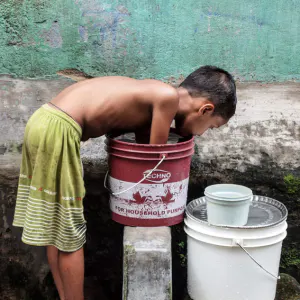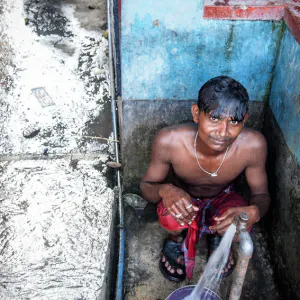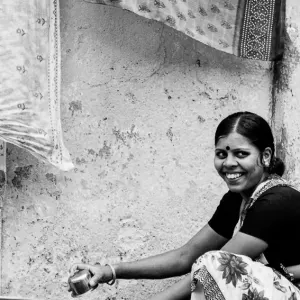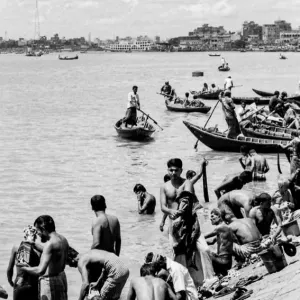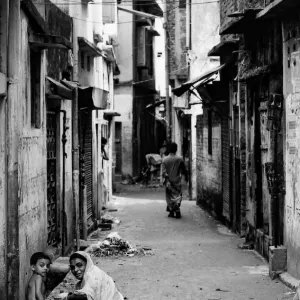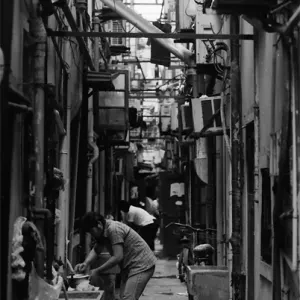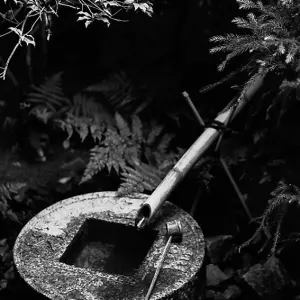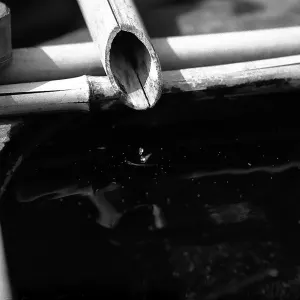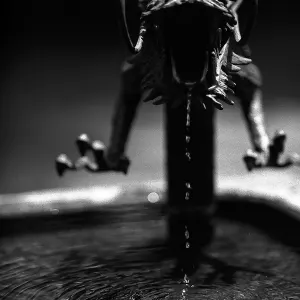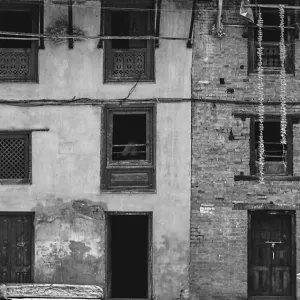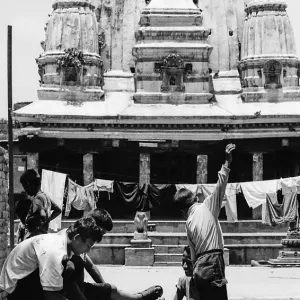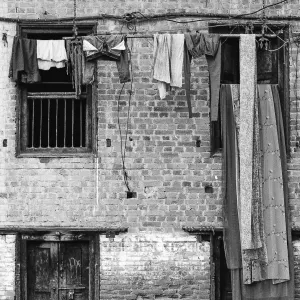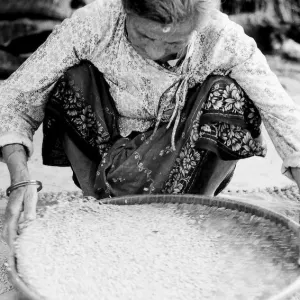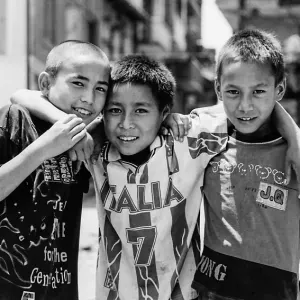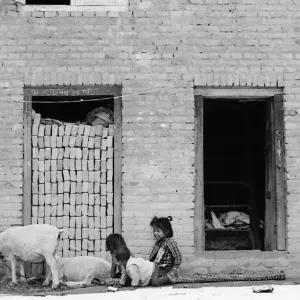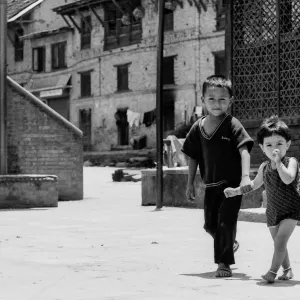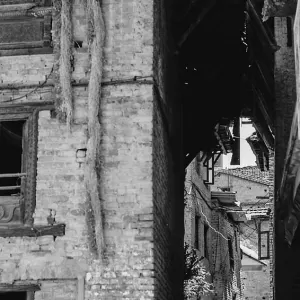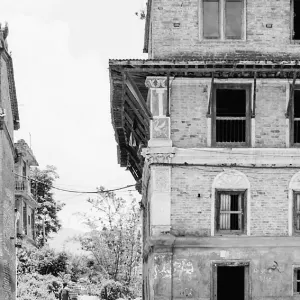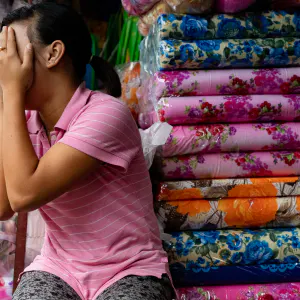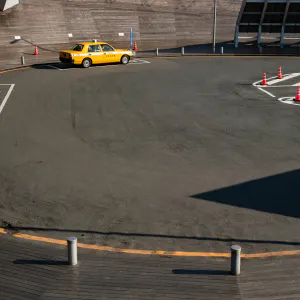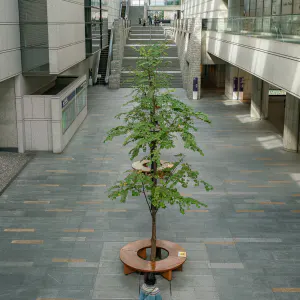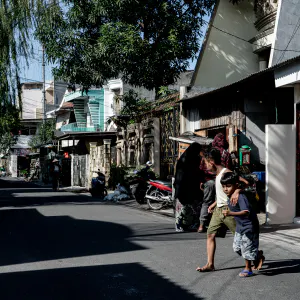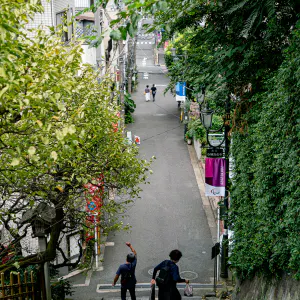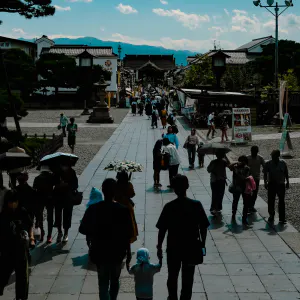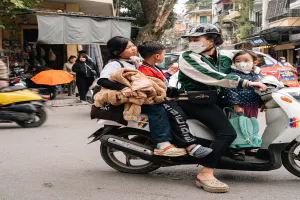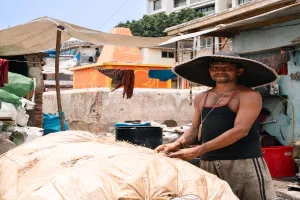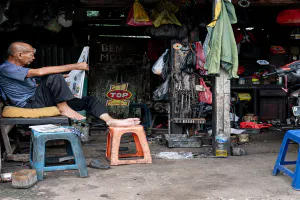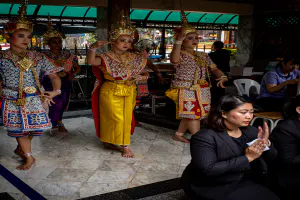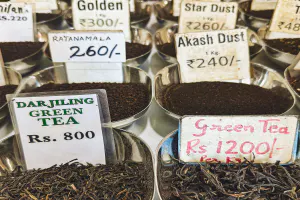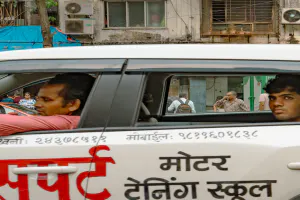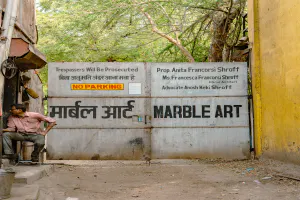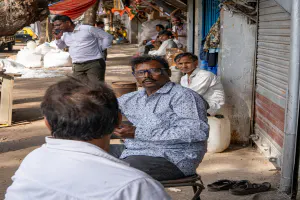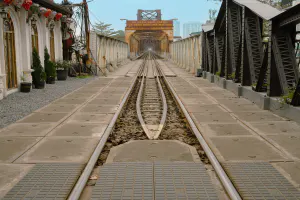The decorative tap was seen on the other side of the woman
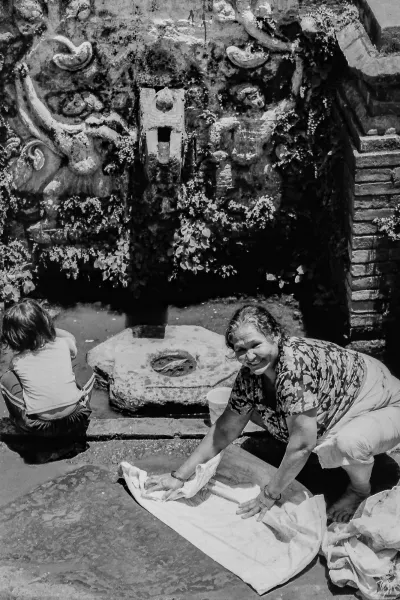
As I wandered through the town of Bungamati, I came upon an old communal water source that immediately caught my eye. Its stone walls were covered in moss and grass, yet the faint carvings still spoke of the long centuries they had endured. In towns across Nepal, such communal water sites remain vital to daily life. A guidebook might call them “heritage sites,” but for the locals, they are nothing more than a kitchen extension. In places where piped water systems remain incomplete, the idea of “modern infrastructure” is still little more than a dream.
As I stood watching, an elderly woman was in the midst of doing laundry. She crouched low, rhythmically pressing cloth against the stone with a motion that was as light and precise as a drumbeat, honed by years of habit. Beside her, a little girl crouched as well, mimicking her mother with tiny hands pressing down on the fabric. Here, the arithmetic is simple: stones and water cost far less and work more reliably than any washing machine on loan.
From a tourist’s perspective, it might appear as a “scene of traditional life,” but for the people themselves it is simply housework. Should they ever see themselves framed in a foreigner’s photo, they would no doubt tilt their heads in puzzlement: “Why come all this way just to find this so curious?” Looking through my camera’s viewfinder, I caught both the act of washing and the centuries-old carvings of the water site within the same frame—a strange juxtaposition that made me shrug quietly to myself.
| Nov 2013 NEPAL PEOPLE | |
| BUNGAMATI LAUNDRY OLDER WOMAN WATER PLACE |
PHOTO DATA
No
8051
Shooting Date
Jul 2009
Posted On
November 8, 2013
Modified On
August 24, 2025
Place
Bungamati, Nepal
Genre
Street Photography
Camera
CANON EOS 1V
Lens
EF85MM F1.2L II USM
